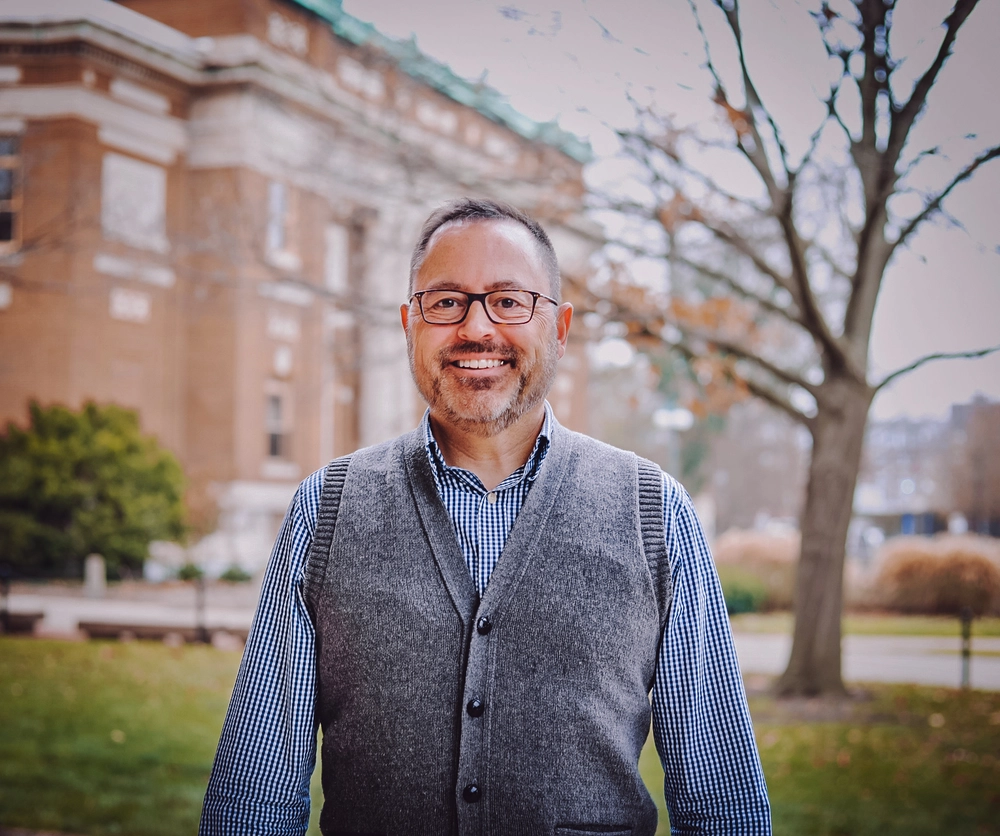
The College of Liberal Arts & Sciences is recognizing several staff members and academic professionals for their outstanding contributions in 2022-2023, including one in the School of Literatures, Cultures & Linguistics.
An award committee selected Brenden Carollo to receive the LAS Academic Professional Award, which comes with a $1,000 award and a $1,000 salary increment supported by funds from LAS alumni.
Carollo serves as director of fourth semester Spanish in the Department of Spanish & Portuguese. The fourth-semester coursework is critical in ensuring that students achieve the expected level of proficiency, and Carollo has transformed this curriculum by developing a customized textbook and creating high-quality online content. During the pandemic, he applied his expertise with online learning to support both students and other instructors in the department.
According to his colleagues, Carollo goes above and beyond to support the department’s people and programs.
“This year’s award recipients do so much to empower our students, support their colleagues, and drive the success of our college,” said Venetria K. Patton, the Harry E. Preble Dean of the College of LAS. “I’m proud to have such kind, dedicated, and passionate people as part of our LAS community and to recognize their important contributions.”
Carollo and the other awardees will be honored at a ceremony in March.
We recently caught up with him and spoke with him about his work.
Can you describe your work within the school?
Currently, I am the director of fourth level Spanish. These courses include SPAN 141 (Introduction to Spanish Grammar) and SPAN 142 (Spanish in the Professions). I coordinate all 20 or so sections of these courses, supervise the TA instructors, and work closely with the head TA for fourth level courses. Additionally, in the spring semester I supervise and evaluate student teachers in the field and am the faculty liaison for the registered student organization Mi Pueblo during the whole school year.
What impact do you hope to have on your students and department?
We know that bilingualism has several measurable and other difficult-to-measure benefits for individuals and societies. My obvious goal for my students is to provide an enjoyable and engaging environment in which they can develop Spanish language skills.
In addition, however, I believe that anyone who learns a second language will never again see the "other" — that is to say, people who speak a different language — as strange and unknowable, but rather more familiar. Learning a second language changes the world view of the learner, making the world around them a little less confusing and scary.
For the graduate student instructors I supervise, I hope that they continuously strive to improve their teaching skills especially in regards to the "in the trenches" implementation of communicative language teaching and learning.
What do you enjoy most about your role?
I love it when my students can put down their phones for a class period and engage with each other in the target language to such a degree that they lose track of time and forget the device in their pockets. I love seeing the progression of an instructor from being acceptable in the classroom to being a real master of the trade with the passing semesters. Being an outstanding classroom teacher is just as important as being an outstanding researcher.
What’s your proudest achievement?
Getting some 1,200 students in my program through the pandemic while maintaining the integrity of the courses. I obviously owe a lot to the graduate student instructors and students themselves for being willing to adapt to a new reality. I believe with some hindsight we will better understand what a monumental undertaking this was.
Anything else you’d like to add?
Each day, I feel grateful to work in the environment that I work in. The graduate students here are outstanding professionals and human beings. The same can be said for my colleagues. I have learned and continue to learn how to do a better job from all of them. It's really a group effort.
Dania De La Hoya Rojas
Editor's note: A version of this story first appeared on the College of LAS website.